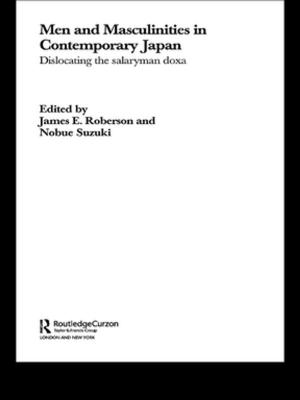The Ascent of Man
A Philosophy of Human Nature
Nonfiction, Religion & Spirituality, Philosophy, Medieval| Author: | James F. Harris | ISBN: | 9781351305587 |
| Publisher: | Taylor and Francis | Publication: | September 29, 2017 |
| Imprint: | Routledge | Language: | English |
| Author: | James F. Harris |
| ISBN: | 9781351305587 |
| Publisher: | Taylor and Francis |
| Publication: | September 29, 2017 |
| Imprint: | Routledge |
| Language: | English |
The Ascent of Man develops a comprehensive theory of human nature. James F. Harris sees human nature as an emergent property that supervenes a cluster of properties. Despite significant overlap between individuals that have human nature and those that are biologically human, the concept of human nature developed in this book is different. Whether biologically human or not, an individual may be said to possess human nature. This theory of human nature is called the"cluster theory."
Harris takes as his point of departurePlato's comment that in learning what a thing is we should look to the ways in which it acts upon or is acted upon by other things. He commits to a methodological naturalism and draws upon current views from the social and biological sciences. The cluster theory he develops represents one of the very few completely novel theories of human nature developed in the post-Darwin era. It will prove most useful in dealing with philosophical questions involving such contemporary issues as cloning, cybernetics, and the possibility of extraterrestrial life.
The fundamental conceptual issue is how plastic and elastic is the nature of human nature. Just how different might we imagine human beings to be and still be human in the sense that they still possess whatever it is that accounts for a unique nature? The theory of human nature developed in this book is a descriptive, dynamic, bottom-up, non-essentialist, naturalist theory. Harris is well versed in classical philosophy and contemporary behavioral science. He writes in a graceful, open-ended way that both educates and illuminates renewed interest in what it means to be human.
The Ascent of Man develops a comprehensive theory of human nature. James F. Harris sees human nature as an emergent property that supervenes a cluster of properties. Despite significant overlap between individuals that have human nature and those that are biologically human, the concept of human nature developed in this book is different. Whether biologically human or not, an individual may be said to possess human nature. This theory of human nature is called the"cluster theory."
Harris takes as his point of departurePlato's comment that in learning what a thing is we should look to the ways in which it acts upon or is acted upon by other things. He commits to a methodological naturalism and draws upon current views from the social and biological sciences. The cluster theory he develops represents one of the very few completely novel theories of human nature developed in the post-Darwin era. It will prove most useful in dealing with philosophical questions involving such contemporary issues as cloning, cybernetics, and the possibility of extraterrestrial life.
The fundamental conceptual issue is how plastic and elastic is the nature of human nature. Just how different might we imagine human beings to be and still be human in the sense that they still possess whatever it is that accounts for a unique nature? The theory of human nature developed in this book is a descriptive, dynamic, bottom-up, non-essentialist, naturalist theory. Harris is well versed in classical philosophy and contemporary behavioral science. He writes in a graceful, open-ended way that both educates and illuminates renewed interest in what it means to be human.















